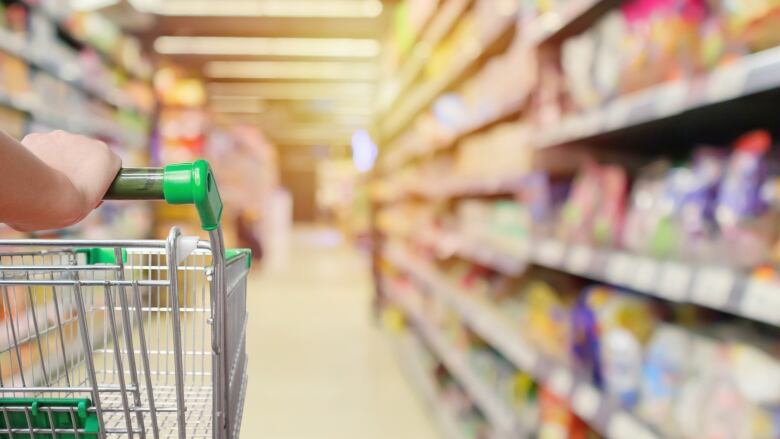Climate change, COVID-19 and the war in Ukraine are driving up food prices in N.L.
Cash transfer programs best short-term fix, prof says

Rebecca Schliett says her fridge looks emptier by the week.
The St. John's mother of two relied on a family member to drop off food this week. Two boxes of produce: expired, but still edible.
Without those groceries, she says, she'd have some dire choices to make.
"You do start to have to make decisions on, are you going to skip this meal with your kids, because that gives them a bit more? Or not are you too hungry today?" Schliett said in a recent interview.
Schliett says she's had to borrow money to supplement her grocery budget as food prices ratchet upwardacross Newfoundland and Labrador. The same amount of cash no longer buys her what it did the last time she made a trip to the supermarket, she says.
Others in Schliett's boat have leaned heavily on sale items, driving to different stores to save money as sticker prices ticked upwardin recent months, says Sarah Crocker, a program co-ordinator with Food First N.L.
Last year, the food security organization assessed how residents are coping with high prices in the St. John's area.
"There's this huge gap between income and the cost of food," Crocker said.

St. John's is the most food-insecure major metropolitan area in the country, according to Crocker. And rising prices of everything across Canada aren't doing the most vulnerable any favours.
In February, Canadian consumer prices increased 5.7 per cent year over year, according to Statistics Canada the largest gain in over 30 years. "Price increases were broad-based in February, pinching the pocketbooks of Canadians," the agency said in a recent report on inflation.
"That means people are compromising on the quality or variety, or even the amount of food they have," Crocker explained.
Income supplements a priority
Josh Smee, CEO of Food First N.L., says small recent increases to income supplements are the right way to ameliorate hunger in the province.
"We know that food insecurity is mostly an income issue. We know that people's dollars aren't going as far as they were before," Smee said.
But those support payments should be indexed to inflation, he added. "Effectively we've been cutting everyone's income support every year," he said.
Prices don't look like they'll be dropping any time soon. Even before Russia invaded Ukraine, food security was under threat, says Sarah Martin, a political science professor at Memorial University.
Biodiversity loss, climate change and supply issues caused by COVID-19 had already stressed the global food system, with 800 million people around the world facing hunger, according to the Food and Agriculture Organization of the United Nations.
That number will rise by 10 per cent due to the war, she noted, as wheat exports from Russia and Ukraine come to a halt.
The price of wheat is higher than in 2008, and adjusting for inflation, even higher than it was during the Second World War, she said.
One way to offset that is to diversify the food supply: depending on alternative grains, she said, so countries rely less on specific regions to provide most of their calories.
But in the short-term, only more money can help the most vulnerable stay fed.
"We need cash transfer programs," Martin said, noting provinces can't let people like Schliettfall behind. "We need to support people where they are, as they are."
With files from Adam Walsh












_(720p).jpg)


 OFFICIAL HD MUSIC VIDEO.jpg)
.jpg)



























































































